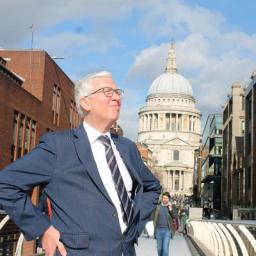The CJC: people's access to justice?

By Tony Guise
Tony Guise reports on the recent CJC day conference
“The Civil Justice Council (CJC) is an Advisory Public Body which was established under the Civil Procedure Act 1997 with responsibility for overseeing and co-ordinating the modernisation of the civil justice system.” Thus, the CJC’s website describes their role. In the almost 25 years since it was established, their activities have waxed and waned as successive Heads have come and gone. The Judge recommending its inception, Lord Woolf MR, made limited use of it. Subsequent chairs, such as Lord Phillips MR and Lord Clarke MR made greater use of the Council. Current Chair, Sir Geoffrey Vos, seems particularly passionate about its role at the heart of civil justice reform in England and Wales. In the 11 months since Sir Geoffrey was appointed Head of Civil Justice, there have been several consultations, reports and events, each aiming to make (A)DR mainstream and managed online.
What brought us here today?
Yet the Council was almost never to be, because the Lord Chancellor’s Department (LCD), as the MoJ was known in 1996, opposed the idea of the Council as a “talking shop”. A clause providing for its establishment was only included within the Civil Procedure Bill at the last minute, after a major campaign by the civil justice community during the second half of 1996. This culminated in a debate in the Moses Room of the House of Lords in mid-December 1996, attended by officials from the LCD to hear from me (for the London Solicitors Litigation Association), Peter Burnett-Hitchcock (Law Society of England and Wales) and others, including the Bar Council and the Consumers’ Association. The campaign was organised by myself and the omnipotent Secretary to the LSEW’s Civil Litigation Committee, subsequently DJ Burn.
The CJC possesses a perhaps unique power (in the civil justice universe) to draw in those with an interest in civil justice reform from Senior Judiciary to legal professionals, specialist professional associations, the third sector, special interest groups, academics and service providers such as DisputesEfiling.com.
The event
It was therefore with some pleasure that on Friday 10 December 2021 I found myself attending the Council’s day conference (“The 10th National Forum on Access to Justice for those without means”) at Westminster Central Hall, just a short walk and 25 years from the Moses Room in the House of Lords where the Council was born.
The keynote speech was delivered by the Council’s Chairman, Sir Geoffrey Vos, Master of the Rolls making a forceful case for the continuing role of the CJC in civil justice reform and the importance of enabling those with difficulties borne of social, financial and/or medical issues to access the justice system. This was a welcome return to a topic which in earlier speeches Sir Geoffrey has, some have said, adopted too blasé an approach to the digital divide. His speech at this event should go some way to reassuring those critics he is alive to the challenge.
The first aim of the Forum, Sir Geoffrey explained, is to: “…..build a system that is ever more accessible for the vast majority of citizens especially the new generation who use digital devices in every aspect of their lives.”
For the MoJ, Lord Wolfson of Tredegar QC spoke passionately about his enthusiasm for the civil justice modernisation programme as a launch pad for further improvement with support services for those suffering digital exclusion.
Key themes
Three plenary sessions covered topics as diverse as:
- How do access to justice initiatives achieve successful outcomes?
- How can access to justice be sustainable?
- How can the links between civil justice and other areas of people’s lives be better understood? Can civil justice in this wider context be strengthened to improve outcomes?
Outside these sessions there were workshops looking at such things as the Futures Project, chaired by Andrew Parker of DAC Beachcroft, scanning the horizon of technology to gain insights into future developments. This is vital work as the legal technology market changes quickly and it is vital civil justice does not become left behind as it has been for the past few decades.
Afternoon Breakout sessions looked at other CJC work, such as inclusivity and Diversity in the civil justice system (chair Dian Sechi) and reform to the Pre-Action Protocols (co-chairs Professor Andrew Higgins and Associate Professor Masood Ahmed). The team at the CJC are congratulated for the excellent event.
Missed it? Catch up here...
Recordings of the main sessions are available on You Tube via this link, including my contribution addressing the important role transparent regulation will make to growing the market for [A]DR.
Tony Guise is the director of DisputesEfiling.com. He is also past president of the London Solicitors Litigation Association: disputesefiling.com; Twitter: @CloudArbitrator; LinkedIn: linkedin.com/in/tonyguise

